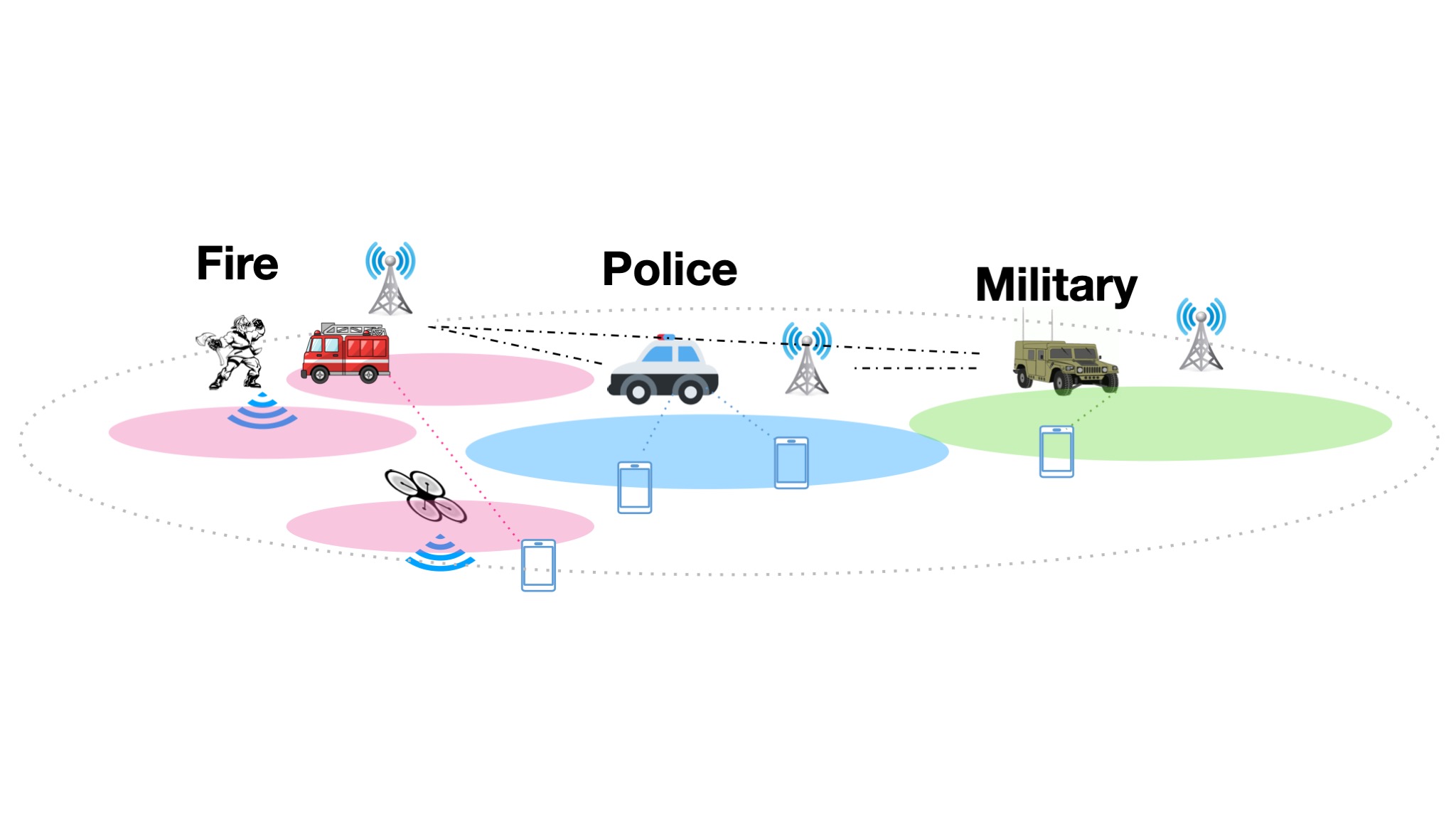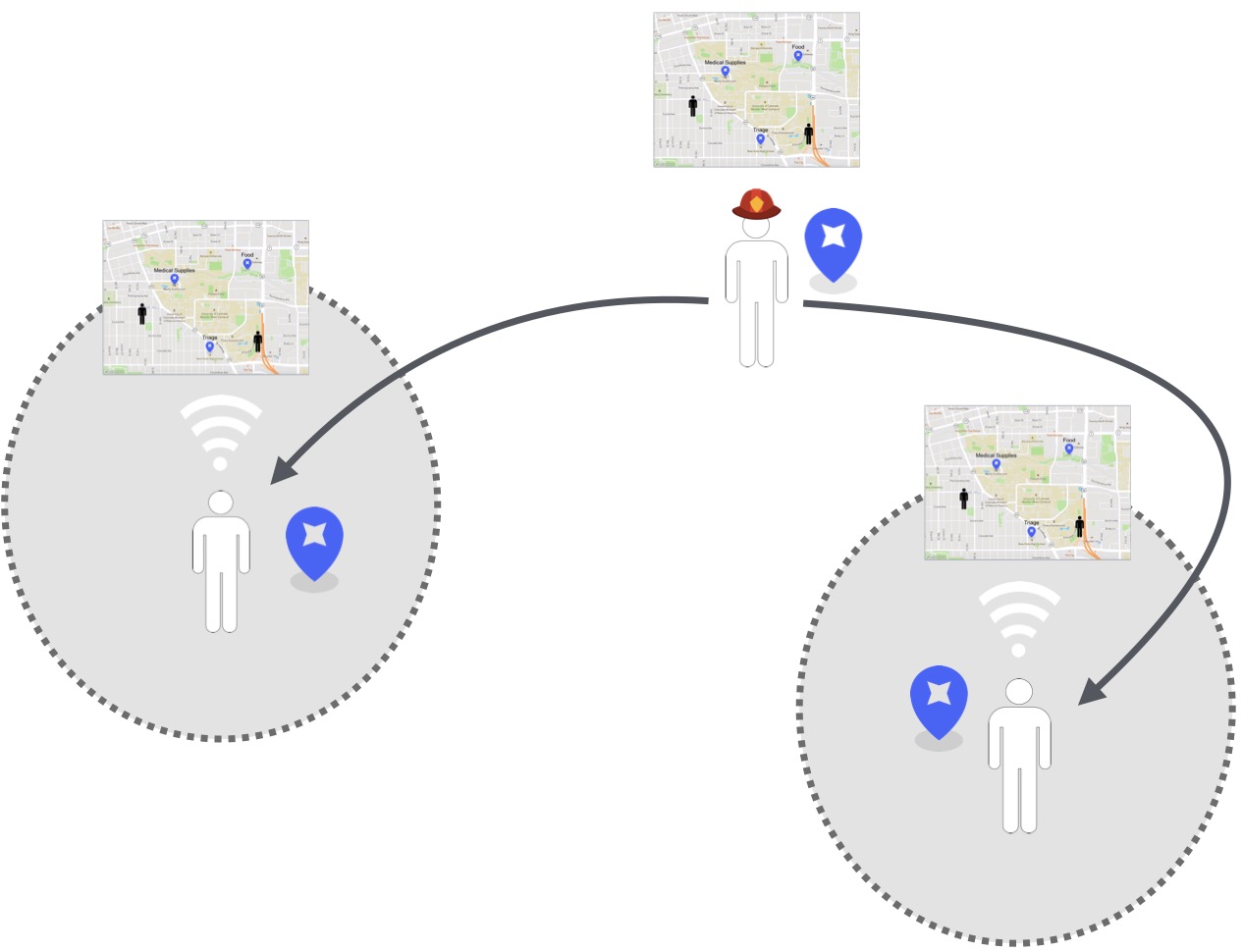Overview
The proposal uses commodity networks, including
WiFi, Bluetooth, commercially available UHF radios and LTE networks to evaluate
a proposed software environment
respons, the Reliable Environment for Secure
Police Operations and Networks.
This portion of the proposed work seeks to
develop a usable fog computing application environment
for use in dispersed or situational computing
for police systems. The respons system uses a combination of
distributed consensus systems, distributed transactional memory and
object systems, multi-path routing and container-based application
isolation. Many of the technologies needed for resilient systems are
commonly used in existing datacenter scale systems, but those systems
require adaptation for the relatively poor network connectivity and
disconnected operation that would occur in field systems.
Reusing the existing software and design patterns simplifies the
training needed to develop applications using the software framework.
This system will use the plurality of networks which can be
partitioned and perturbed to emulate network partitions and failures,
and consumer-grade long-range but low-bandwidth networks used to
emulate functions of the emerging device-to-device networking
standard.
This proposal is funded by NIST Public Safety Communications
Research.
Mobile Edge Computing over Elastic EPC cluster
Mobile Edge Computing (MEC) is an essential part of the 5G plan to support the numerous IoT devices that are projected
to be in use over the coming decades. These IoT devices will have very limited computing power and will rely on services
provided from the network to process and respond to the physical input they are receiving. We believe that there is
utility in taking inspiration from MEC in 5G and applying it to public safety communications. Latency to edge services and resiliency to loss of network connection is the major contribution of this work.

Offline Map Sharing
Our goal is to develop a framework that simplifies the production of complex mobile applications.
We develop a distributed spatial computing application that focuses on messaging,
image dissemination and map retrieval, which is inspired by Serval project. We
implement optimized distributed spatial data organized that can be used to rapidly identify shared and
geo-spatially distributed representations of common map information.

Video
